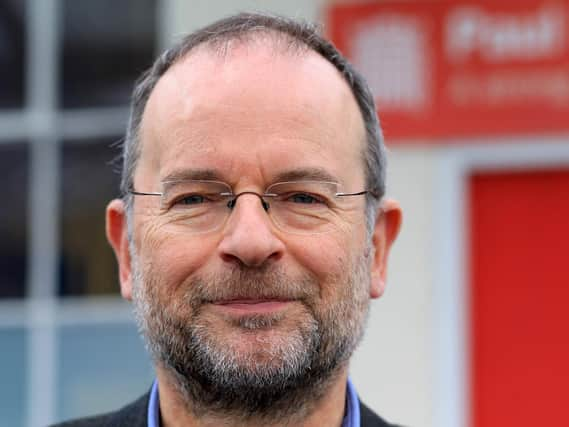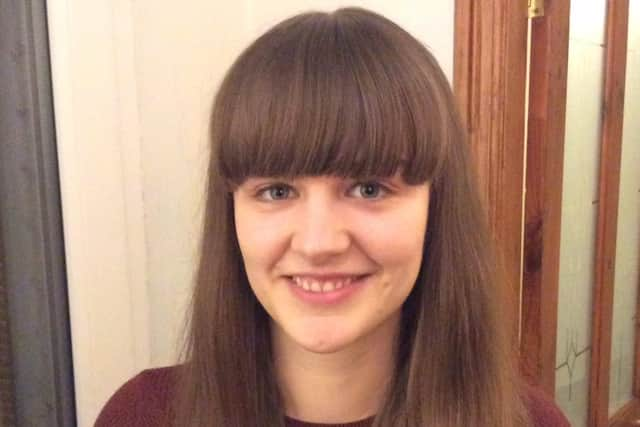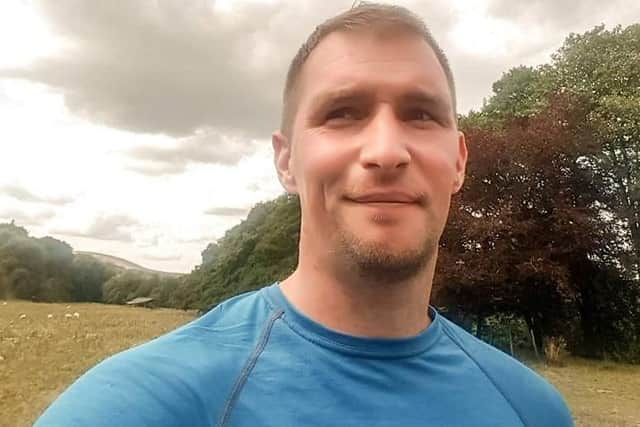Telegraph Voices: Are we doing enough to get young people involved in politics?


Paul Blomfield MP, Member of Parliament for Sheffield Central
Over the next few weeks I'll be holding my annual community consultation, the Big Conversation, to listen to constituents' views and concerns. As well as open meetings, cafe and pub drop-ins and street surgeries, I go to every secondary school in my constituency to hear directly from young people about what they want me to raise in Parliament.


Advertisement
Hide AdAdvertisement
Hide AdThese meetings are among the liveliest of the forty or more events I hold over three weeks. Whether it's the future of the UK's relationship with the EU, waiting times for mental health services or the rights of different groups, young people have clear views and make them strongly. It counters the myth that they aren't interested in politics. The challenge is giving them a voice in the political process.
It should start with giving them a vote. Despite the fact that they can legally join the army, get married, become a company director, pay taxes and receive benefits, 16 and 17 year olds can't currently vote. Changing that would send a powerful message that we value their views, and make sure that politicians listened to their concerns.
We could then ask schools to register their students. When many university students were bumped off the electoral register a few years, as a result of a change in the system, I worked with the University of Sheffield and the City Council to integrate student enrolment and voter registration. It was hugely successful and is being be rolled out across the country. Schools could easily run a similar system.
Giving young people a vote should be linked to better citizenship education in schools. It's a point that they often make to me. It means the Government treating it seriously, taking it out of the margins and making it an important part of the curriculum for all our schools.


Advertisement
Hide AdAdvertisement
Hide AdThere's much more to political engagement than just voting, but those three simple steps '“ votes at 16, easier electoral registration, and improved citizenship education - would be a good start to getting more young people involved. And getting them involved would be good for our democracy.
Â
Katherine Smith, Doctoral researcher at University of Sheffield
Young people are already involved in politics, but that does not mean that we are doing enough. Political scientists are of course concerned with younger generations' involvement in forms of participation including the democratic institutions of voting and political party membership. There has been an ongoing concern about declining long-term trends in both of these over recent decades. However, we cannot underestimate young people who, like generations before them, will and do find their own ways to express their voice and involve themselves in politics.


There is much research to show that young people have higher rates of involvement in forms of politics relating to everyday ethical decisions, such as individual diets, the environment and work, sometimes referred to as political consumerism. Furthermore, there is evidence that young people are more likely to participate in civic activities such as volunteering, as well as activism via online petitions. Research also indicates that the vast majority of younger generations have opinions on political issues, many of which are detailed and sophisticated.
Advertisement
Hide AdAdvertisement
Hide AdGiven these facts, how do we then explain the lower voter turnout rates of younger generations in elections? (as despite contested claims of a 'Youthquake' in the 2017 general election, all of the available studies continue to indicate voter turnout rates which gradually decrease with each younger age group). The best explanation is that younger generations are more likely to feel alienated from the institutions of political parties and elections, by which I mean that they lack a sense of connection to it, or a stake in it.
Therefore, society still has much to do in order to involve younger generations in politics, not because youth cannot represent themselves or get involved in politics, but because many young people have been excluded from important forms of political participation. Research shows one of the best predictors of political participation is to have been asked to take part. If political organisations are to survive, and institutions remain legitimate, they must take this on board, and actively seek to invite younger generations to participate, as equals to their older counterparts.
Â
Jude Daniel Smith, Sheffield Youth Cabinet Member
Politics is an extremely important topic, especially for todays youth - they will be the ones to inherit this country after all. I believe the education system and parental figures in young people's lives need to be more proactive in educating them upon the political system/how Britain is governed. For example, lessons like PSHE (Personal, Social and Health Education) are a great way to implement this knowledge into the school curriculum; this will also go hand in hand with other skills in PSHE that prepare the pupil for transitioning into adult life. Ultimately, teachers need to give students an insight into politics and how it impacts their lives, however subtle it may be.
We need to empower the younger generation to get involved and have their say in matters that will shape the future they will live in through knowledge exchange activities and shared experiences. Additionally, extracurricular opportunity is a brilliant way to expand information on a subject and politics is no exception. Debate clubs, online research courses and political societies are among the few ways students can get involved. I am part of the Sheffield Youth Cabinet, run by Sheffield Futures; we strive to get young people's voices heard by those who have the power to positively impact their environment.
Advertisement
Hide AdAdvertisement
Hide AdIntriguing people with politics at a young age is beneficial; it expands their awareness of the society they live in and how the current political landscape can quickly change their world.
Politics is not just about elections and parties and manifestos though, it's also about social climate. Strong personalities in positions of authority can influence young people too - as demonstrated by Magid Magid, Sheffield's new Lord Mayor, who is a beacon of social change in our multicultural city. His inclusion of all ages and backgrounds makes politics more accessible which definitely inspired me to grasp every opportunity to get involved in social change movements.
In summary, it is essential that the new generation gets their voice heard and the most effective way to make this happen is to educate and equip them with the knowledge they need of the political landscape.
Â
Lee Raven, Youth Involvement Worker at Sheffield Futures
I am fortunate to be in a unique position working with young people who have been democratically elected to represent young people on a local, regional and national level. As part of their role they must be party neutral so the focus is purely on campaigning on issues to improve services and experiences for their peers.
Advertisement
Hide AdAdvertisement
Hide AdHowever, this group of young people are not just interested in politics, they follow, study and understand current affairs and the economy comprehensively. Many of them aspire to go on to study politics, sociology, philosophy and economics at University and have ambitions to be politicians and key decision makers for the future.
This restores my faith in the future of this country and leads me on to how young people could and should be involved in politics.
For the past two years, members of the UK Youth Parliament have been campaigning on two key issues voted by young people; Votes at 16 and A Curriculum for Life.
Ironically there is a debate amongst adults and indeed MP's that young people aren't equipped with life experience and skills to vote at 16 but yet non-academic '˜informal education' around personal finances, politics and the wider economy are notably missing from the curriculum.
Advertisement
Hide AdAdvertisement
Hide AdMy job, Youth Involvement Worker at Sheffield Futures, is to enable young people to participate in democracy, engage in issue-based consultation and topical debates. The key way for this to happen effectively is to seek the support from schools that have constraints on time and resources with a pressured focus on their students succeeding on measured educational outcomes.
This said many schools value youth voice and enable their students to participate in '˜Make your Mark', the annual issue based consultation which informs UK Youth Parliament campaigns and also to vote for elected representatives.
To conclude, I believe that young people are interested in politics and passionate about making positive change. Young people have enthusiasm and innovation that should contribute and complement the experience and knowledge of adults and MP's when making decisions for the future.
The key is investing time and resources for education and development in politics.
Â
Â
Â
Â